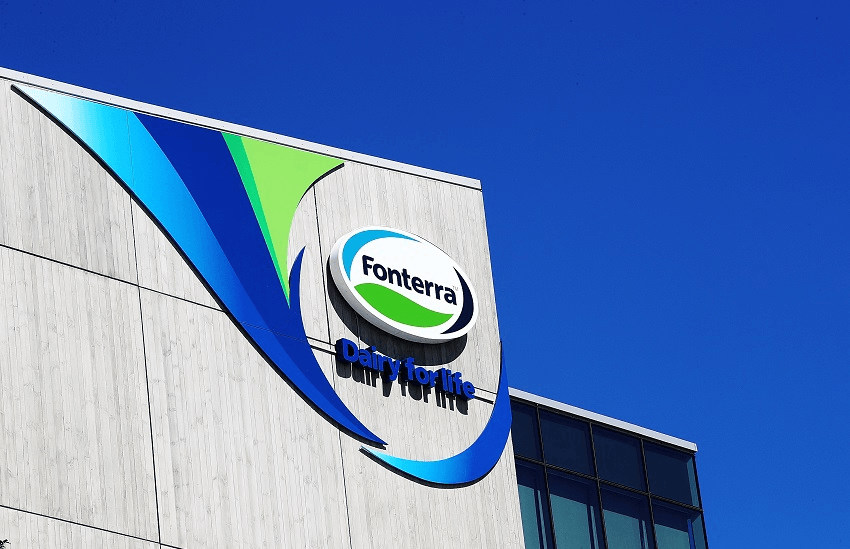New Zealand’s largest company has warned it will lose as much as $675m this year. What has happened in dairying and are we doomed?
What has Fonterra said?
Fonterra Co-operative Group has given farmers and the markets an update on its financial situation. It says it will make a whopping loss for the year of between $590m and $675m and won’t be paying a dividend to farmers at all this year.
The loss is not in cash as such. Fonterra is doing a full review of all its businesses and has realised it needs to reduce the value of some of them by $820m to $860m, hence the dive into the red. CEO Miles Hurrell says it’s a one-off accounting adjustment.
How bad is this news for farmers?
It’s not great. Fonterra is a co-operative that is owned by its farmers, and they get paid in two ways: the Farmgate Milk Price they receive for each kilogram of milk solids (kgMS) they supply, and a dividend they earn for each share they own in the co-operative. The Farmgate Milk Price has held up at $6.30 – $6.40 and they still receive this, but today’s announcement means they get no dividend payment for 2019. They’re sort of getting used to it – last year they received just 10 cents a share thanks to Fonterra making its first ever loss, and that was paid in the first half of the year with nothing in the final six months. In comparison the total dividend payout for 2017 was 40 cents per share.
Is this Fonterra’s annual results announcement?
No. Fonterra’s financial year ends on July 31, and it will make its actual annual results announcement on September 13. This is a heads up so the sector doesn’t get a shock when it reports next month. The update is important given Fonterra’s dramatic reversal in fortunes, and it will be hoping the final number comes in at the lower end of its predicted spread.
In 2018 the dairy co-op made the first loss in its 17-year history of $196m, but recovered somewhat in the first half of this year to report a $80m profit. Hurrell warned at the time that while it was good to be back in the black, the co-operative’s earnings were down 29% on the same time last year. That was why it had told farmers in February that their dividend was likely to be in the 15-25 cents per share range, as opposed to the previously forecast 25-35 cents.
Is today’s news a surprise?
Not really. After its weak half-year results announcement in March, many experts were predicting Fonterra wouldn’t pay a dividend. Then at its third-quarter update in May the co-operative revised its earnings per share forecast down again, this time to 10-15 cents.
But if Fonterra is still earning money why will there be such a terrible result?
It’s become clear some of its assets are overvalued in relation to what they will earn going forward, the co-op says. The problem areas are mainly overseas but also include its New Zealand consumer business.
It has written down the value of its Brazilian business by $200m due to the economic conditions there. Next door in Venezuela it’s had to sell its consumer business and close down its ingredients operation due to economic and political instability, costing it $135m. Fonterra has also had to write down the value of its China Farms business by $200m.
Meanwhile its Australian arm is adapting to “the new norm of continued drought, reduced domestic milk supply and aggressive competition,” Hurrell says. Fonterra has closed a Victorian dairy factory and written off goodwill in the business at a cost of $70m.
Back home the local consumer division has had its own challenges and it is having to rebuild the business, including selling ice cream maker Tip Top. All up it has written down the value of the business by around $200m.
These decisions are tough but necessary, Hurrell says.
Hasn’t Fonterra had other problems in China?
Yes. Its investment in Chinese infant formula manufacturer Beingmate has been a dog, and it is now having to sell its shares for less than a third of what it originally paid for them – a loss that could run to hundreds of millions of dollars.
Should we be worried?
Kind of. Fonterra is a huge force in the New Zealand economy accounting for a quarter of all our merchandise exports (stuff we sell overseas), so if it sneezes we all run the risk of catching a bad cold.
The financial markets certainly aren’t happy. The price of units in the Fonterra Shareholders’ Fund – the bit of the organisation that allows people who aren’t farmers to invest – slumped on today’s news to under $3.60. The units have taken a battering over the past 18 months and are down from $6.60 in January last year.
But the co-op remains strong at its core, Hurrell insists. Over the past 12 months it’s improved cashflow, reduced debt and cut costs. It’s getting rid of assets that are no longer considered central to its future, and the business units at the heart of its new strategy are delivering. It will discuss the new strategy further at the annual results announcement next month, he says.
